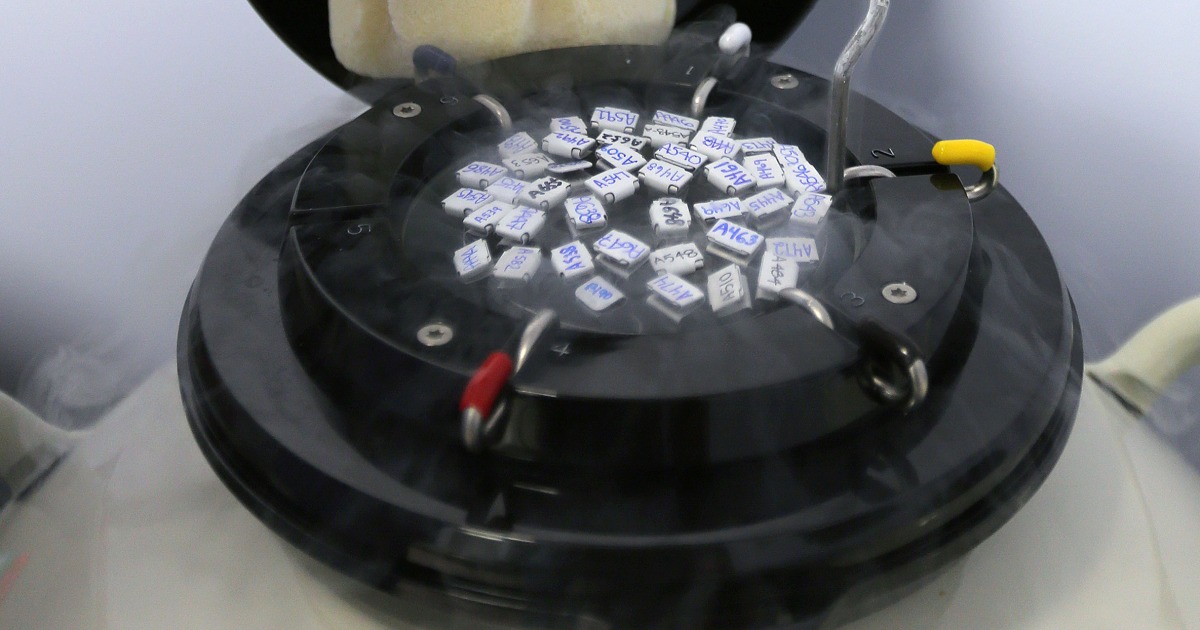According to the decision, people in Alabama could theoretically be sued for destroying a frozen embryo, raising questions about in-vitro fertilization.
After three miscarriages in less than a year, Gabby Goidel said she was diagnosed with unexplained genetic infertility.
For reasons that aren’t clear to doctors, any fetus she carries has a higher-than-average likelihood of genetic abnormalities, she said, so there is a slim chance she’d be able to carry a pregnancy to term without in-vitro fertilization.
To avoid the possibility of additional miscarriages, Goidel and her husband, Spencer, decided last year to pursue IVF in their home state of Alabama.
IVF allows doctors to test embryos for genetic abnormalities, then implant only the ones that are healthy.
The Goidels were on track to freeze embryos later this month, and they planned to only store the ones that were genetically normal.
But on Friday, the Alabama Supreme Court ruled that frozen embryos created through IVF are considered children under state law, meaning people could theoretically be sued for destroying an embryo.
The Goidels began to worry whether they might be forced to store — or even use — embryos they had intended to discard.



This ruling is so dumb, I work with embryos and they’re 100% just a clump of dividing cells up until a certain point. Its like eating yoghurt and PETA suing you for the mass slaughter of billions of bacteria.
Jfc, imagine needing to create an account just to police peoples communication… 🤯
https://medium.com/no-prescription-needed/grammar-the-worlds-most-under-recognized-social-construct-a54e096ecc9c
And naming that account “Its no tits”